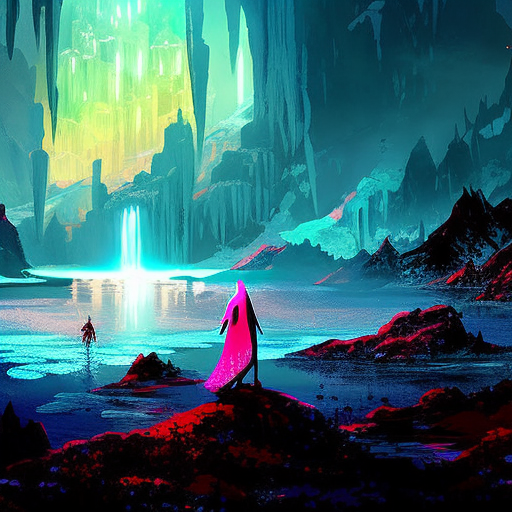One-line summary:
The Left Hand of Darkness is a thought-provoking science fiction novel that explores themes of gender, identity, and the complexities of human relationships.
Introduction:
In Ursula K. Le Guin’s groundbreaking novel, The Left Hand of Darkness, readers are transported to the planet of Gethen, also known as Winter, where the inhabitants are neither male nor female. This thought-provoking science fiction tale delves into the complexities of gender, identity, and the ways in which societal norms shape our understanding of ourselves and others.
Exploring Gender and Identity:
On the planet Gethen, the inhabitants are androgynous and only assume a gender during a period called “kemmer,” in which they become sexually active and can take on either male or female characteristics. This unique aspect of Gethenian biology challenges traditional notions of gender and raises questions about the role of gender in society. Through the eyes of the protagonist, Genly Ai, a human envoy sent to Gethen, readers are invited to question their own assumptions about gender and consider the ways in which it shapes our identities.
Le Guin skillfully explores the fluidity of gender and the impact it has on relationships and power dynamics. The absence of a fixed gender identity on Gethen allows for a more nuanced exploration of human connection and the barriers that exist when gender expectations are removed. The novel challenges the binary understanding of gender and encourages readers to embrace the diversity of human experiences.
Navigating Cultural Differences:
As Genly Ai attempts to navigate the complex web of Gethenian politics and culture, he grapples with the challenges of understanding a society that operates outside the norms he is accustomed to. The novel delves into the intricacies of cultural differences and the difficulties of communication across these divides.
Le Guin’s portrayal of Gethenian society highlights the ways in which cultural context shapes our understanding of the world. Through Genly Ai’s interactions with Gethenians, readers are reminded of the importance of empathy, open-mindedness, and the willingness to challenge one’s own assumptions. The novel serves as a powerful reminder that true understanding and connection can only be achieved through active engagement with different cultures and perspectives.
The Power of Storytelling:
Throughout The Left Hand of Darkness, storytelling plays a central role in shaping the narrative and influencing the characters’ understanding of themselves and their world. Le Guin weaves together myths, legends, and personal narratives to create a rich tapestry of storytelling that reflects the complexities of Gethenian society.
Storytelling serves as a means of preserving cultural heritage, transmitting knowledge, and challenging existing power structures. It is through the power of storytelling that Genly Ai is able to bridge the gap between his own culture and that of the Gethenians. The novel emphasizes the importance of storytelling as a tool for empathy, understanding, and the exploration of diverse perspectives.
Key Takeaways:
- The Left Hand of Darkness challenges traditional notions of gender and invites readers to question their own assumptions about identity.
- Cultural differences can be navigated through empathy, open-mindedness, and a willingness to challenge one’s own biases.
- Storytelling has the power to bridge gaps between cultures, challenge power structures, and foster understanding.
“The only thing that makes life possible is permanent, intolerable uncertainty: not knowing what comes next.”
– Ursula K. Le Guin, The Left Hand of Darkness
In conclusion, The Left Hand of Darkness is a thought-provoking exploration of gender, identity, and the complexities of human relationships. Through its vivid portrayal of the planet Gethen and its inhabitants, Le Guin challenges readers to question societal norms, navigate cultural differences, and embrace the power of storytelling. This novel serves as a reminder of the importance of empathy, open-mindedness, and the willingness to challenge one’s own assumptions in order to foster understanding and connection.












